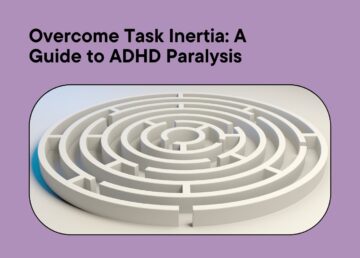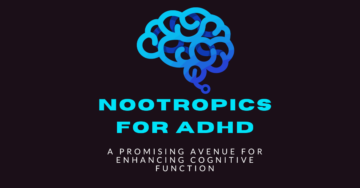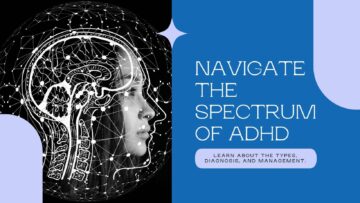ADHD May Go Undiagnosed – But How Can It Affect a Person’s Overall Mental Health?

There’s a misconception that the more severe the mental health condition is, the more it affects a person. It’s not strictly the case.
Sure, some things are more challenging to treat than others, and some mental health issues can clinically be affected through various treatments like medication, therapy, or mindfulness practice.
However – not all mental health conditions are created equally, and neither are their effects on the brain.
A Little Bit of Background
What is ADHD?
ADHD, or Attention Deficit Hyperactivity Disorder, is a condition that can affect a person’s behavior. Usually, people with ADHD may seem restless, have trouble with concentration, and may act impulsively.
Sounds familiar?
Why Does ADHD Slip Under the Radar?
While ADHD can often be diagnosed relatively easily in children – diagnoses in adults are much more difficult.
This is partly due to the fact that there’s some disagreement in the medical community about whether the symptoms used for diagnosing children and teens also apply to adults.
In most cases where a diagnosis is achieved, it’s due to the subject displaying 5 or more inattentiveness or hyperactivity symptoms.
The symptoms of ADHD usually improve as we age, but many adults who were diagnosed as children continue to experience issues later in life.
Here’s the kicker:
ADHD can naturally progress to additional problems like anxiety and sleep disorders.
What Are the Symptoms?
Well, as I mentioned, it’s rarely the case that the symptoms are apparent enough to lead to a diagnosis – but here are the most common ones. Let’s break them down into two main groups: inattentiveness and hyperactivity/impulsiveness.
Inattentiveness
Inattentiveness is usually described as a difficulty in concentrating or focusing – this can present itself in numerous ways, including, but not limited to:
- Having a short attention span
- Appearing to forget or occasionally lose things
- Making careless mistakes at work
Hyperactivity/impulsivity
Often described as an inability to sit still for long periods – hyperactivity mainly presents itself in children, but as an adult, there are some tell-tale signs:
- Being unable to concentrate on tasks
- Constantly fidgeting
- Restless legs while stationary
- Interrupting conversations without realizing
And, of course, plenty more.
You may not realize how damaging some of these things can be. An inability to concentrate can easily lead to poor performance at work. Making careless mistakes can be the difference between getting home fine and leaving your keys at the bar.
But we’re not here to talk about the symptoms today – we’re here to talk about the solutions.
Finding the Solution
As in most things – there is no one-size-fits-all solution to ADHD. It’s a complex beast and needs to be treated as such.
Standard treatment options include medication, psychotherapy, group therapy, and cognitive behavioral therapy (CBT) – a form of psychological treatment that focuses on effectively treating a range of conditions by changing a person’s patterns of thinking.
Each has its own pros and cons, but I want to focus on CBT today, specifically, an app that harnesses the power of CBT and could provide excellent results. That app? Sensa.
Utilizing CBT is an intelligent choice for an app – because not only does it work remotely, it can be tailored to the individual needs of each user.
As such, the majority of people suffering from ADHD can find a solution, no matter their symptoms.
Why Sensa?
What makes Sensa special? Well, for me, it’s the personalization of the plan. As I mentioned earlier – having a plan tailored to each individual is essential in making for useful treatment.
Sensa’s plans are developed by mental health professionals – meaning you can be sure that the advice and information on offer are not only good but scientifically backed.
If you’re tired of constantly feeling on edge, lacking the ability to concentrate, or even worry about that little tapping your foot always seems to do – Sensa is a perfect companion for your continued journey to improved mental health.
Maybe you know somebody who may match these descriptors? Send them to Sensa, you may just be doing them the biggest favor ever.





